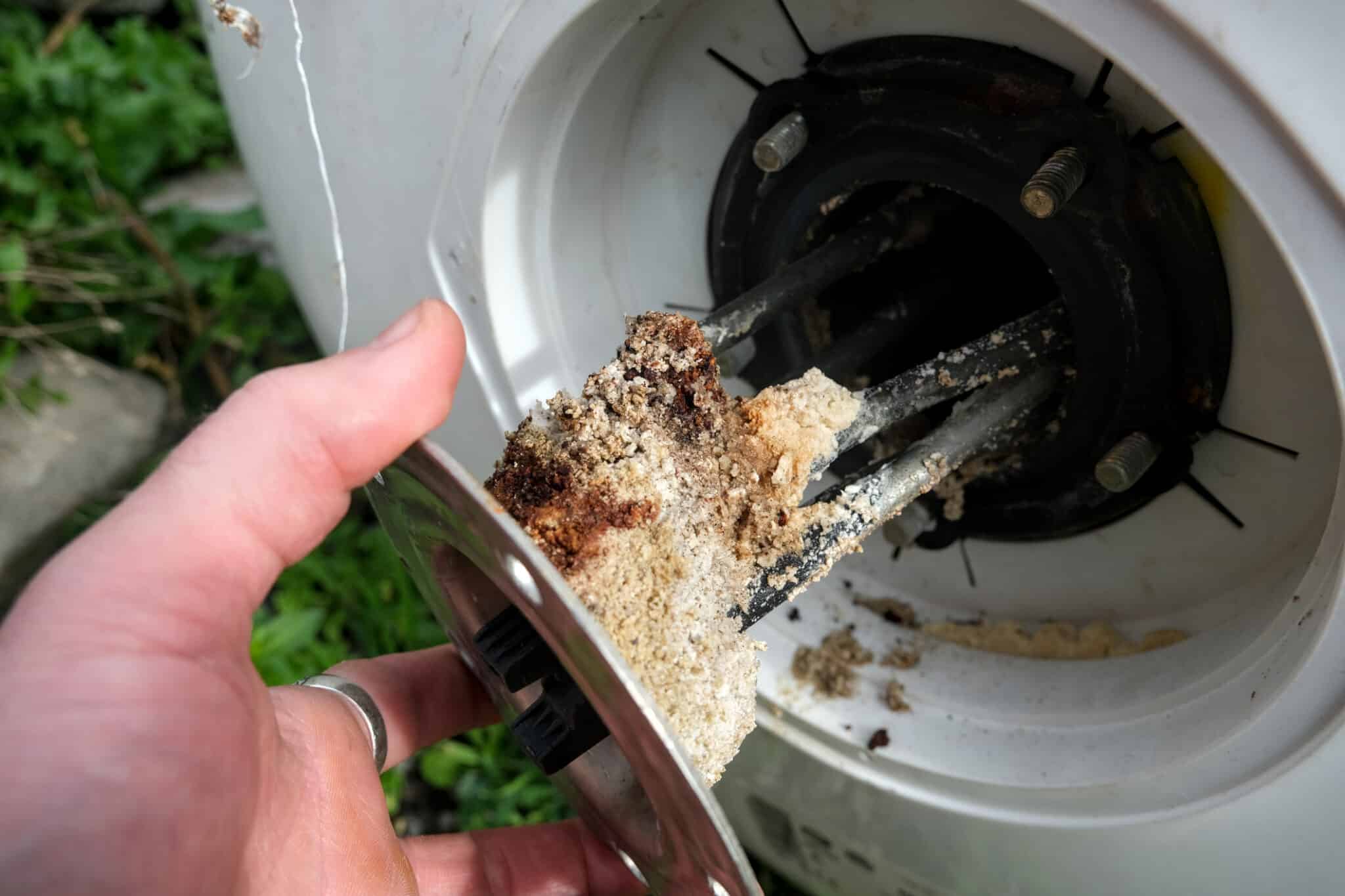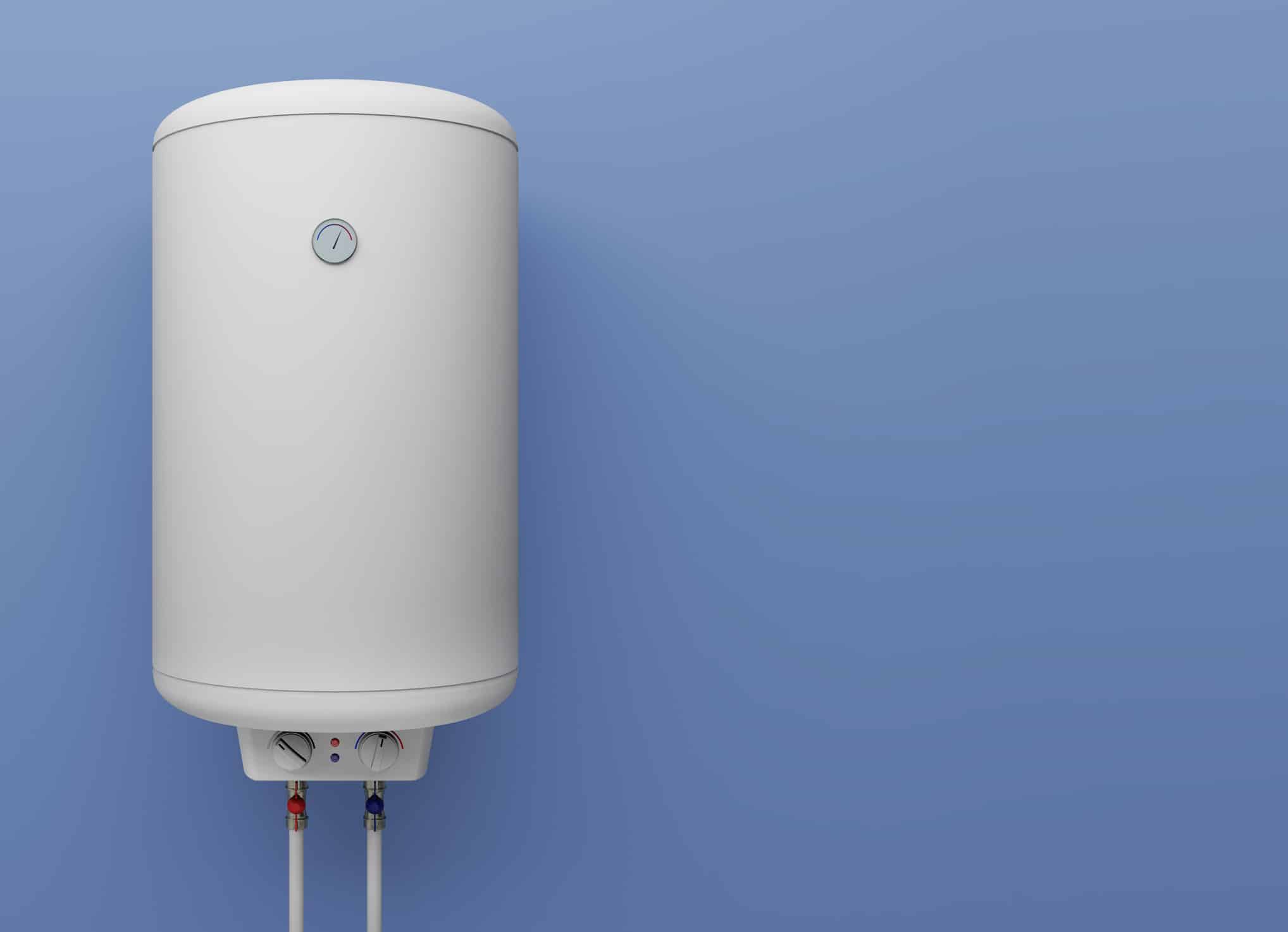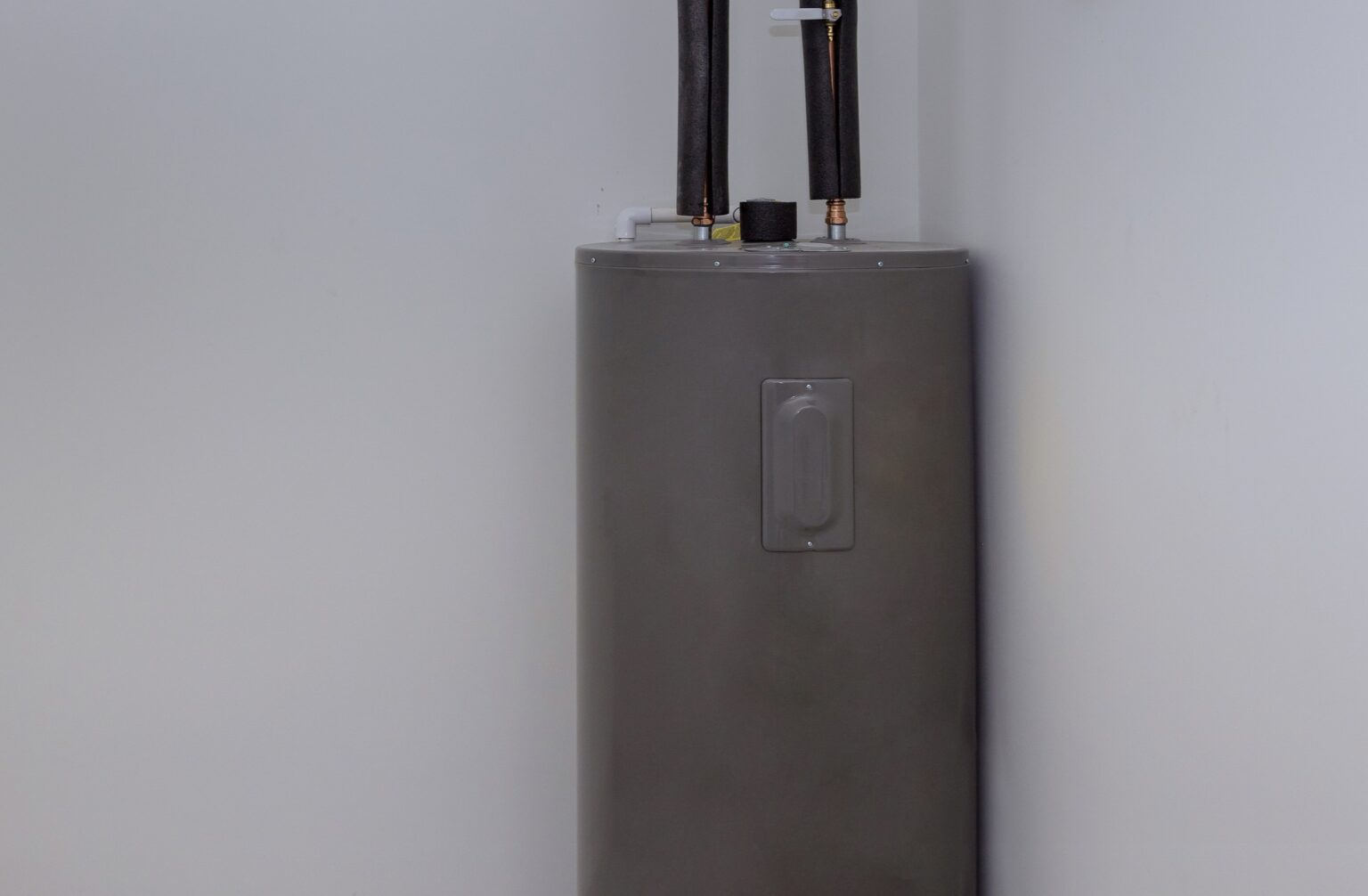Your water heater works hard every day, but it won’t last forever. Understanding the typical water heater lifespan is crucial for avoiding cold showers and unexpected breakdowns. Most homeowners don’t think about their water heater until something goes wrong. However, staying informed helps you make smarter, safer choices for your home and family.
In Buckeye and Phoenix, AZ, the hot summer months can mask water heater issues. You might not notice problems right away, but that doesn’t mean they’re not brewing. A unit near the end of its life can fail suddenly, leaving you without hot water when you need it most. Recognizing early warning signs helps prevent bigger problems later on.
Routine maintenance by a licensed professional extends your water heater’s life. Ignoring strange noises, rusty water, or inconsistent temperatures could lead to costly repairs. Being proactive not only saves money but also protects your home from leaks and water damage. Waiting for a full breakdown often leads to more inconvenience and expense.
Understanding water heater lifespan and its warning signs keeps your household running smoothly. With a little knowledge and timely action, homeowners in Arizona can avoid major disruptions and enjoy reliable hot water every day.
Factors That Influence Water Heater Lifespan
Several factors determine how long a water heater will last in your Buckeye or Phoenix home. Water quality, maintenance frequency, and installation practices all affect overall performance. A well-maintained unit performs better and lasts longer than a neglected one. Investing in proper care saves time, money, and hassle over the years.
Arizona’s hard water contains minerals that cause sediment buildup inside the tank. Over time, this buildup forces the unit to work harder, reducing efficiency. It also accelerates wear on the heating elements, making early failure more likely. Addressing mineral buildup with regular flushing helps preserve your water heater lifespan.
Installation also plays a vital role in longevity. A poorly installed water heater may develop pressure issues, leaks, or even structural damage. Hiring licensed professionals ensures the unit meets safety codes and performs efficiently. Choosing the right size and model also prevents overuse and overheating.
Consistent maintenance extends the life of any water heater. Annual inspections, anode rod replacements, and flushing help prevent serious problems. These small steps add years to your system’s life and improve performance. Protecting your investment begins with understanding how your actions influence the water heater lifespan.
Signs Your Water Heater Is Nearing the End
Recognizing the signs of a failing water heater can prevent costly damage and ensure uninterrupted hot water. One early warning is inconsistent water temperature during use. When your system struggles to maintain steady heat, the heating element may be failing. This problem often appears as short bursts of cold water during a shower.
Unusual noises coming from the tank are another red flag. Sediment buildup causes banging, popping, or rumbling sounds as water heats up. These sounds mean the heater is working harder than normal, which shortens its lifespan. Addressing this quickly helps maintain performance and efficiency.
Leaks around the base of the water heater indicate internal issues. Small drips may seem harmless, but they often lead to more serious damage. Corrosion inside the tank creates cracks that worsen over time. Once this starts, replacing the unit becomes the only safe option.
Rusty water or metallic smells are final indicators of deterioration. When the anode rod no longer protects the tank, rust forms and contaminates your water supply. Delaying action increases the risk of flooding and system failure. Watching for these signs ensures that you handle problems early and protect your home. Acting quickly adds years to your water heater lifespan.
How Climate Affects Your Water Heater’s Lifespan
The hot, dry climate in Buckeye and Phoenix plays a role in how long your water heater lasts. High temperatures reduce the strain on heating elements, especially during the summer. However, the region’s hard water still poses significant challenges. Mineral deposits form quickly, leading to clogged pipes and reduced efficiency.
When sediment builds up in the tank, it forces the system to work harder. This increased effort causes overheating, which shortens the water heater lifespan significantly. Regular flushing removes sediment and maintains smooth operation. Skipping this step allows damage to accumulate over time.
Arizona’s climate can also cause early wear on exterior components. Dry air and heat contribute to rubber seal degradation and thermostat failures. These issues affect performance and lead to unexpected shutdowns. Keeping the unit shaded and properly ventilated reduces temperature stress.
Seasonal maintenance becomes especially important in extreme heat. Early summer checks help identify any problems before heavy usage in cooler months. Consistent care allows homeowners to extend their water heater lifespan despite harsh conditions. Paying attention to both water quality and climate is the key to reliable performance. Protect your investment by taking weather-related stress seriously and acting before trouble starts.
Maintenance Tips to Extend Water Heater Lifespan
Proper maintenance significantly increases your water heater lifespan and helps prevent early failures. A few simple actions each year can make a huge difference. Start by flushing the tank annually to remove mineral deposits. This keeps the system clean and maintains heating efficiency.
Check the anode rod every two to three years for signs of corrosion. This rod prevents rust from forming inside the tank and prolongs the water heater lifespan. Replacing it when worn out protects the inner lining from damage. Ignoring this step leads to costly repairs or full replacements.
Inspect the pressure relief valve regularly to ensure safe operation. This valve releases pressure buildup and prevents dangerous tank ruptures. If it fails or sticks, replace it immediately to protect your water heater lifespan. Always test it during routine maintenance checks.
Keep the area around your water heater clean and free from debris. Ensure proper airflow and ventilation to avoid overheating and wear on components. These small but essential habits improve performance and maximize your water heater lifespan. Partnering with a licensed plumber ensures maintenance tasks are done correctly and safely. Long-lasting equipment starts with regular care and timely attention.

Common Problems That Shorten Water Heater Lifespan
Several common issues can shorten your water heater lifespan if left unaddressed. One of the biggest problems is sediment buildup from Arizona’s hard water. As minerals settle at the bottom of the tank, they insulate the burner and force it to work harder. This added strain reduces efficiency and damages the unit over time.
Corrosion is another major threat to your water heater lifespan. If the anode rod becomes too worn, rust begins to form inside the tank. This weakens the structure and eventually leads to leaks or tank failure. Regular checks and timely replacement of this rod help prevent serious damage.
Faulty thermostats and heating elements also decrease water heater lifespan. If the system overheats or fails to heat properly, it puts stress on the internal parts. Sudden temperature spikes or lukewarm water often signal trouble. Fixing these components early helps avoid further wear.
Water pressure that’s too high can cause damage to seals and joints. Over time, this leads to leaking valves and compromised safety. Installing a pressure regulator protects the tank and extends your water heater lifespan. Paying attention to these common issues can make the difference between early replacement and long-term reliability.
Importance of Professional Inspections
Professional inspections play a vital role in preserving your water heater lifespan and preventing sudden breakdowns. A licensed plumber checks for signs of wear, leaks, and sediment buildup. These experts spot potential problems before they cause major damage or system failure. Early detection helps save money and extends equipment life.
Inspections include testing components like the anode rod and pressure relief valve. These parts directly affect your water heater lifespan by preventing corrosion and overpressure. Replacing them at the right time keeps the system running safely and efficiently. Professionals also ensure your water heater meets local safety codes and standards.
Another key benefit of inspections is identifying hidden issues. Small cracks, thermostat malfunctions, or electrical problems often go unnoticed until it’s too late. Regular evaluations allow for timely repairs that protect your water heater lifespan. They also help maintain a consistent hot water supply for your home.
In the hot, mineral-rich environment of Buckeye and Phoenix, inspections are especially important. Hard water and heat can wear out parts quickly if left unchecked. Professional assessments offer peace of mind and reduce the risk of expensive emergencies. For long-lasting performance, schedule regular inspections and protect your water heater lifespan with expert care.
Choosing the Right Water Heater for Long-Term Use
Selecting the right unit at the start plays a huge role in extending your water heater lifespan. The proper size ensures it meets your household’s needs without overworking. An undersized heater runs more often, wearing out internal components faster. Oversized units may waste energy and drive up utility costs.
In Buckeye and Phoenix, consider models built to handle hard water and intense summer heat. Features like self-cleaning systems and corrosion-resistant materials boost durability. These upgrades protect your water heater lifespan by minimizing internal buildup and wear. Choosing a model designed for local conditions makes long-term maintenance easier.
Energy-efficient models are also worth considering for their long-lasting performance. While they may cost more upfront, their improved components reduce stress on the system. Less stress means fewer breakdowns and longer service life. Reliable brands often include longer warranties, which reflect confidence in their water heater lifespan.
Consulting with a professional helps match the right model to your home’s usage and layout. Licensed plumbers evaluate plumbing systems, household size, and local water quality. Their advice supports smarter decisions that protect your water heater lifespan. A carefully chosen system saves time, money, and frustration over the years.

Comparing Tank vs. Tankless Units for Lifespan
The type of water heater you choose directly impacts the overall water heater lifespan in your home. Tank water heaters usually last 8 to 12 years with proper maintenance. In contrast, tankless units can last up to 20 years or more. Choosing the right model depends on household needs and maintenance habits.
Tank heaters store hot water continuously, which means they operate more often. This constant cycling increases wear and shortens the water heater lifespan. However, they’re often more affordable and easier to install. Proper care like flushing and anode rod checks are essential to maintain performance.
Tankless models heat water on demand, reducing stress on the system. With fewer internal components exposed to constant heat, these systems often enjoy a longer water heater lifespan. They also save space and energy, making them ideal for smaller homes or eco-conscious households. However, installation requires more expertise and planning.
Both types require maintenance, though tankless models need fewer internal cleanings. Hard water in Arizona affects both systems, so regular descaling is essential. Whether choosing tank or tankless, regular inspections by a professional support a longer water heater lifespan. Each type offers benefits, but care and usage make the biggest difference.
How Usage Habits Influence Water Heater Lifespan
Everyday habits have a big impact on your water heater lifespan, especially in households with high hot water demands. Frequent long showers and running multiple appliances simultaneously increase wear on the system. This constant use forces the unit to heat water more often, leading to faster breakdowns. Reducing excess usage can help preserve its condition.
Setting the thermostat too high is another common issue that harms your water heater lifespan. Hotter settings put more stress on heating elements and raise energy consumption. Keeping the temperature around 120 degrees Fahrenheit protects components and prevents scalding. This simple adjustment helps save money and extends the system’s life.
Ignoring minor problems like temperature fluctuations or strange noises leads to bigger issues. These small warnings often point to underlying mechanical faults or buildup. Acting early to address them protects your water heater lifespan. Regular check-ins, even between professional visits, help you catch issues early.
Water quality also affects how usage habits impact the system. Using a water softener reduces mineral buildup from Arizona’s hard water. This improves overall performance and prolongs the water heater lifespan. Simple daily choices, like spacing out hot water use, can reduce system strain and keep your heater working longer.
When to Replace Instead of Repair
Knowing when to replace your unit rather than repair it protects your home and extends your overall water heater lifespan. If the system is over ten years old and showing signs of wear, replacement is often more cost-effective. Continually fixing an aging heater becomes expensive and unreliable. Investing in a new model ensures safety and consistent performance.
Frequent repairs signal deeper issues that shorten water heater lifespan. If you’re calling a plumber more than once a year, it may be time for an upgrade. These repeat problems often involve heating elements, valves, or pressure systems wearing out. Replacing the unit saves money in the long run.
Energy bills can also signal declining performance. An inefficient heater uses more electricity to provide the same amount of hot water. This strain lowers your water heater lifespan and wastes resources. A modern, energy-efficient model reduces both your utility costs and environmental impact.
Leaks, rust, or strange noises should never be ignored. These symptoms point to internal failures that may lead to flooding or total breakdown. Choosing to replace your water heater at the right time protects your home and improves safety. Knowing when to stop repairing helps maximize your water heater lifespan and provides peace of mind.
Conclusion: Protect Your Water Heater with Expert Care
A long-lasting water heater depends on smart choices, regular maintenance, and early detection of warning signs. Whether you’re dealing with hard water in Phoenix or high usage in Buckeye, understanding the water heater lifespan helps prevent major disruptions. From temperature issues to strange noises, staying alert keeps your system efficient and your home comfortable year-round.
Routine inspections and professional care play a major role in preserving your equipment. Don’t wait for a cold shower or unexpected leak to take action. The sooner you address potential problems, the longer your system will last. Reliable hot water is essential, and protecting it starts with informed, proactive steps.
If your current unit is aging or showing signs of trouble, don’t delay. Let trusted professionals guide you toward the best solution for your home’s needs. Replacing an old water heater before it fails avoids unnecessary stress and damage.
At Benjamin Franklin Plumbing of Phoenix, AZ, we specialize in helping homeowners extend their water heater lifespan with expert service and tailored solutions. Contact us today to schedule an inspection, maintenance visit, or consultation. We’re here to keep your water hot, your system efficient, and your home protected, every day of the year.
Frequently Asked Questions
-
What is the average water heater lifespan in Arizona?
In Arizona, the average water heater lifespan ranges from 8 to 12 years for tank units. Tankless systems typically last up to 20 years. However, hard water can shorten that lifespan without proper maintenance. Regular flushing and inspections help protect your investment and extend its service life.
-
How can I tell if my water heater is failing?
Common signs include inconsistent temperatures, strange noises, rusty water, or water pooling around the base. These symptoms suggest internal issues that could lead to a complete breakdown. Addressing problems early extends your water heater lifespan. Waiting too long often results in higher repair or replacement costs.
-
Does Arizona’s climate affect water heater performance?
Yes, the intense heat and mineral-rich water in Buckeye and Phoenix increase wear on your system. External components degrade faster in dry heat. Hard water leads to sediment buildup that shortens your water heater lifespan. Professional care tailored to local conditions can minimize these effects.
-
How often should I schedule maintenance?
Professional inspections should happen once a year, especially in areas with hard water. Maintenance includes flushing the tank, checking components, and testing safety features. Routine service helps maintain consistent performance and maximizes your water heater lifespan.
-
When is replacement better than repair?
If your system is over ten years old or requires frequent repairs, replacement is usually more cost-effective. A new unit improves efficiency and reliability. Upgrading at the right time adds value to your home and protects your water heater lifespan.


